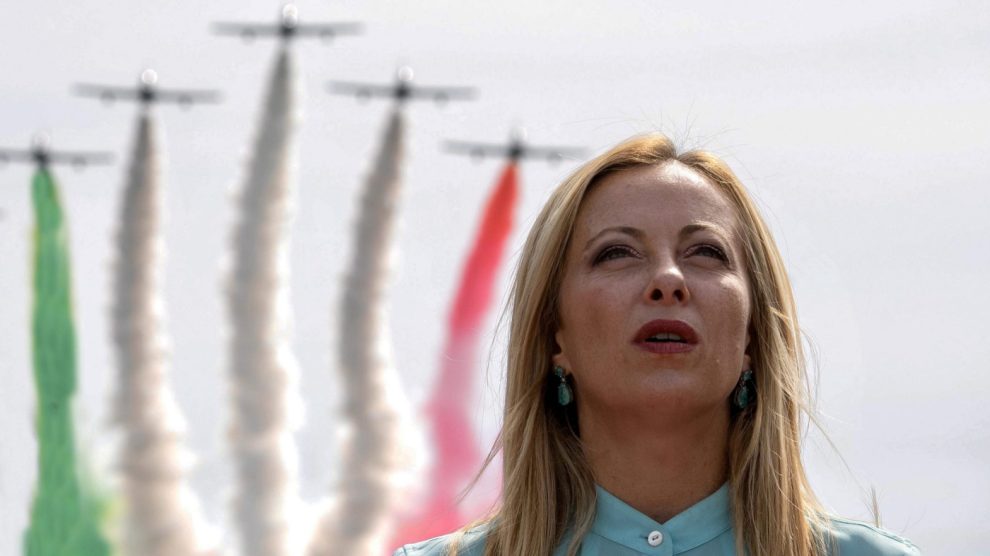It’s been a year since the last Italian elections, through which the centre-right coalition attained a wide majority and ushered in the government led by Giorgia Meloni. In a country notorious for its political instability, and even accounting for differences amidst allies, her government seems stable enough to buck the trend, offering reasons to believe it might make it to the natural end of the five-year legislation.
- This, in turn, consolidates the chances of PM Meloni’s foreign policy developing as intended.
- Attesting to that is her steady hand on crucial matters like Ukraine despite the pro-Russian sympathies within the two biggest junior partners in the coalition: the League, headed by former Vladimir Putin admirer Matteo Salvini, and Forza Italia, founded by the late Silvio Berlusconi, who was friends with the Russian autocrat.
Stalwart Atlanticism, backing Kyiv. In her first year in power, the Meloni government acted in continuity with its predecessor, led by former ECB head Mario Draghi. Consequently, its core drive has been that of fortifying Italy’s Atlanticist positioning, expressed through its staunch support for Ukraine and contributions to NATO.
- Among other measures, Rome has been delivering military and humanitarian aid to Kyiv while pressuring allies to ensure the steady flow of equipment.
- It’s also working to ensure a solid foundation for Ukraine’s future through initiatives like the Reconstruction Conference this summer and by calling for its integration with the European Union.
- In the backdrop, PM Meloni has been expanding the scope of Italy’s “unshakable” ties with the United States and positioning Italy as a leader within the Alliance, driving its attention to the Southern Flank.
Stable in Europe (and engaging on migrants). One year on, the relationship between Rome and Brussels can best be described as a functional and transparent cooperation. The Meloni government has maintained Mario Draghi’s line of fiscal moderation and debt reduction while seeking to redefine some parts of the EU-bankrolled Next Generation plan to account for shifting trends.
- Meanwhile, the executive hasn’t shied away from becoming more assertive on some of its pressing issues, chiefly migration. Italy’s newfound voice within Europe has sometimes ruffled allies’ feathers but also resulted in more attention – and results, as demonstrated with the Tunisia deal – on behalf of EU institutions.
Focus on Africa. Bringing attention to the continent (and the Global South more generally) is one of the stated priorities of the Italian-led G-7 in 2024. In the coming weeks, the Meloni government is set to unveil its highly-anticipated “Mattei Plan for Africa” – which will outline Rome’s “non-predatory” and mutually beneficial cooperation model for African nations.
- In a nutshell, it’s about fostering national development in African countries across sectors (energy, infrastructure, the broader economy) to promote growth and stability, thus addressing the root causes of emigration – while offering an alternative to exploitative models and turning Italy into an energy hub.
- The foundations for this are being laid with a string of high-level diplomatic contacts between Italy and African nations – including State visits to and from Algeria, Angola, Libya, Egypt, Ethiopia, Kenya, Somalia, and Tunisia.
Projecting Eastward, de-risking from China. Over the past 12 months, the Meloni executive has been intensifying its presence in the Asian continent by bolstering its military, diplomatic and commercial relations with a range of regional actors, most importantly (but not limited to) India and Japan – with a view on contributing to the development of a free and open Indo-Pacific.
- In parallel, Rome has initiated the process of exiting from China’s Belt and Road Initiative, which reflects both its wider Atlanticist realignment and the wider Western drive to de-risk from Beijing.





